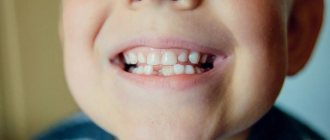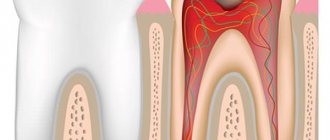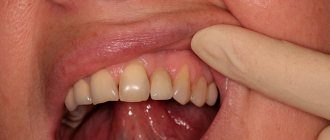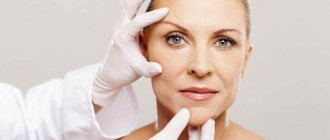February 4, 2019
If the cheekbones on your face hurt, then this is a serious reason to think about your health and the lifestyle you lead. It is also necessary to pay attention to the nature and location of pain. In most cases, you will need to undergo a comprehensive examination of the body. It is important to do this for the simple reason that the cheekbones are close to vital organs and systems, to the brain. Accordingly, any inflammatory process from here can very quickly move to other organs and pose a real threat to life.
And the editors of the portal UltraSmile.ru propose to consider the main reasons why discomfort in the zygomatic area of the face may bother you. But first, let's define the terminology.
For what reason can cheekbones hurt?
Cause of pain #1: dental disease
Painful sensations can be felt in the cheekbone even when there is ordinary caries or pulpitis, periodontitis, stomatitis or alveolitis resulting from tooth extraction. After all, all the organs of the maxillofacial apparatus are located dangerously close to each other.
The photo shows inflammation of the hole after tooth extraction, which can cause pain in the cheekbone
It’s worse when a simple dental disease remains untreated for a long time and the infection begins to spread further, reaching the zygomatic area of the face. Then your cheekbones may already hurt from a more serious pathology - osteomyelitis. The disease affects the bone tissue of the jaw, causing suppuration and necrosis, accompanied by a general deterioration in health, body temperature rises, and the face may become swollen and deformed.
“Osteomyelitis of the upper jaw is observed in medical practice much less frequently than the lower jaw. However, the disease is considered very dangerous because its untimely or incorrect treatment can lead to a broken jaw, sepsis, damage to internal organs, pulmonary failure, and phlegmon. Therefore, it must be treated surgically, additionally use anti-inflammatory therapy, antibiotics, treat neighboring organs affected by the pathological process and remove the affected teeth,” explains Tsorieva E.O., therapist, surgeon.
Osteomyelitis comes in different types: traumatic, radiation (occurs against the background of the appearance of malignant cancerous tumors), hematogenous (infection enters through the blood from neighboring affected organs). But most often the disease is odontogenic in nature, i.e. is a consequence of advanced caries, pulpitis and other dental problems.
Cause of pain No. 2: perforation of the bottom of the maxillary sinus
You will be interested to know that the cause of severe pain in the cheekbone area, wings of the nose, temples and eyes can be due to poor-quality or unprofessional tooth extraction, installation of implants in the upper jaw or due to poorly performed sinus lift (an operation to increase the missing volume bone tissue).
The fact is that such serious procedures can only be trusted to be performed by experienced doctors, whose experience in this field is confirmed by numerous official documentation and patient reviews. Otherwise, you risk encountering difficulties. Moreover, the longer you wait and do not get rid of the consequences of improper treatment, the more severe the complications will be:
- sinus injury: after the loss of teeth in the upper jaw, the bottom of the maxillary sinuses gradually descends, because The jaw bone here is quite thin and, due to lack of load, begins to quickly atrophy; accordingly, there is always a risk of injuring the sinuses. For example, they can be damaged if the implant model is incorrectly selected, if the location of its installation in the bone is incorrectly determined, if preparation for treatment is not carried out thoroughly,
- chronic sinusitis: inflammation in the sinus area is not in vain for the patient, and violation of work technique during osteoplastic surgery or dental implantation can lead to such consequences,
- meningitis and infectious diseases of the brain, inflammation of the jaw bone, the occurrence of abscesses,
- peri-implantitis, implant displacement and rejection.
Perforation of the floor of the maxillary sinus can cause this symptom
“Today, zygomatic dental implantation methods are gaining popularity. They allow patients without teeth, but with extreme atrophy of bone tissue in the upper jaw, to leave the clinic with a new smile in an extremely short time. The protocols involve the use of special models of implants that are installed directly into the zygomatic bone of the upper jaw. Work with them must be carried out with extreme caution and precision; the doctor must first plan all treatment in advance and work out possible risks. Otherwise, the patient has every chance of getting severe complications - damage not only to the zygomatic bone, but also to the maxillary sinus,” says Put V.A., 27 years of work experience, an implant surgeon who was one of the first in Russia to start using it in practice. zygomatic implantation.
Cause of pain No. 3: arthritis or arthrosis
These diseases cause damage to the joints and inflammation of the cheekbone is no exception. What additional symptoms can you feel with these pathologies:
- pain and spasms: with arthrosis, pain will only occur in response to irritating factors and physical activity. For example, when chewing food or when talking, when yawning and opening the mouth. With arthritis, it does not go away even in a calm state and often makes people nervous at night. Please note that in such cases not only the cheekbones will hurt, but also the jaws,
- crunch: you can hear how your joints on your face begin to click and make characteristic sounds when you open your mouth,
- Swelling: The affected area may be swollen, which will naturally affect your appearance. For example, in some cases there is facial deformation.
“My mother actually had this disease - arteritis, something like inflammation of the facial artery. It can easily be confused with arthritis or arthrosis, but it is completely different. And by the way, before she went to the doctor, she said for a long time that it hurt only on one side - the left cheekbone on her face. Only then did the pain begin to radiate to all parts of the face and nothing was clear: the eyes hurt, and the teeth, and the lower jaw, and the nose and around the lips. The doctor then said that it is very dangerous to ignore such a pathology, because it could end in a cerebral hemorrhage!”
Rita, 32top.ru
Joint problems can cause pain
If you have developed arthrosis or arthritis of the cheekbone, treatment may be carried out by a general practitioner, surgeon, orthopedist or rheumatologist. Ointments, injections, physiotherapy, and sets of gymnastic exercises aimed at strengthening joints and developing their elasticity help get rid of the problem. Also, during treatment, the patient must adjust the diet, avoiding too harsh foods, limit physical activity, and avoid stress and hypothermia.
Prevention
Any muscles, including facial ones, need to be kept in good shape. There are several simple but very effective exercises that will help strengthen your muscle corset. In addition, facial gymnastics contributes to the formation of correct diction and a beautiful voice.
- Exercise one. Slowly, open your mouth wide. And just as slowly close it. For visual learners, it is enough to remember what the Nutcracker looks like.
- Exercise two – moving the jaw forward, lips relaxed. Then we move the jaw left and right, trying to gradually draw a circle. A nice bonus is saying goodbye to your double chin.
The whole complex takes no more than 5-7 minutes. The result is strong muscles and no spasms in the cheekbones and jaw.
If you are concerned about involuntary contraction of your cheekbones, to eliminate risks, get examined by our specialists. You can make an appointment online on the clinic’s website. Or by number: +7 (812) 501-7-501, +7 (931) 322-0-955.
Cause of pain No. 4: neuralgic diseases
What pathologies can manifest themselves in this way:
- damage to the ternary nerve: facial neuralgia almost always occurs against this background. After all, the ternary nerve carries impulses to all parts of our face and extends to the eye, maxillary and mandibular region. Damage to the triangular nerve can occur for a variety of reasons. Starting from an unhealthy lifestyle, the occurrence of constant colds and stress, ending with incorrect dental treatment, unprofessional installation of implants or traumatic tooth extraction,
Damage to the triangular nerve can occur for a variety of reasons. - Charlen's syndrome: the disease is also called neuralgia of the nasociliary junction. Here the pathology can be determined by the corners of the eyes. In them, patients usually feel particularly sore, which manifests itself even during the night hours of rest. When pressing on the corners of the eyes, the pain will intensify,
- Sluder syndrome: the upper jaw always hurts here, mainly near the base of the nose. All this is accompanied by inflammation of the nasal mucosa, increased secretion of secretions, salivary fluid, and lacrimation. You can also replace facial swelling,
- Frey's syndrome: pain is localized near the ears and temples,
- neuralgia of the ear or facial nerve: pain in this case is almost always localized under the cheekbones and radiates to the head, and the patient experiences long-term, persistent migraines. In this case, your condition may worsen with the appearance of nausea, pain in the eyes, and tinnitus.
If you spend a long time at the computer in a sitting position, lead a sedentary lifestyle, spend little time in the fresh air, have a habit of propping your head up with your hand and holding the phone with your head, and also often experience nervous overstrain and stressful conditions, then the appearance of neuralgic diseases and disruption of natural blood circulation may well manifest itself as pain in the cheekbones.
In some cases, to diagnose the disease, you will have to do an MRI of the head.
For various types of neuralgia, be sure to consult a therapist or neurologist; you may also need the help of a surgeon or dentist; it would be good to undergo an MRI of the head and take a blood test. In addition to the prescribed course of treatment (depending on the pathology), physiotherapy, acupuncture, electrophoresis, and massage techniques will give a good effect.
Causes of jaw pain not related to dental disorders
Neuralgia
When the trigeminal nerve, which is responsible for the sensitivity of the face and oral cavity, is damaged, the pain is strong, sharp, reminiscent of the pain of pulpitis. Often patients with trigeminal neuralgia undergo unnecessary dental treatment with depulpation or tooth extraction, but the pain syndrome persists.
Sialolithiasis
Salivary stone disease is characterized by the formation of stones in the ducts of the large salivary glands. Since the salivary glands are located in the mouth, pain during their inflammation also affects other nearby organs of the oral cavity, in particular the jaw.
Sinusitis
When the mucous membrane of the maxillary cavity becomes inflamed, increasing swelling and accumulation of exudate cause pain spreading to the upper jaw area from the side of the affected sinus.
Otitis
Sometimes the symptoms of otitis media are similar to toothache. With inflammation of the middle ear, pain often radiates to the jaw. The pain is sharp, shooting, aggravated by chewing and swallowing.
Submandibular lymphadenopathy
Enlargement of the submandibular lymph nodes is observed in diseases of the tonsils, acute respiratory viral infections, stomatitis, and oncological tumors. Pain under the jaw is often accompanied by limited range of motion - it is difficult for the patient to bend and turn his head, or open his mouth wide.
Diseases of the cardiovascular system
Irradiation of pain into the lower jaw can be observed during an attack of angina and myocardial infarction. A characteristic symptom of coronary heart disease is burning, pressing pain behind the sternum. But with an atypical course of a heart attack, retrosternal pain may be completely absent, only reflected pain comes to the fore: in the left arm, in the neck, in the face, in the jaw.
Cause of pain No. 6: injuries and jaw fractures
As a result of falls, accidents, fights, or playing hazardous sports, you can damage your jaw. Moreover, regardless of the location of the damage, you may be accompanied by a pain symptom that will radiate to the zygomatic region. You will also suffer from limited mobility of the maxillofacial apparatus, speech and facial expression disorders, and facial deformation. But usually, if similar circumstances happen in life, then you will definitely be aware of everything that is happening and will not look for the reasons why your cheekbones hurt.
Jaw injury may cause problems
We hope that regardless of the situation, if you experience any painful sensations that do not go away on their own, but only intensify, you will definitely consult a doctor!
Notice
: Undefined variable: post_id in
/home/c/ch75405/public_html/wp-content/themes/UltraSmile/single-item.php
on line
45 Notice
: Undefined variable: full in
/home/c/ch75405/public_html/wp-content /themes/UltraSmile/single-item.php
on line
46
Rate this article:
( 4 ratings, average: 5.00 out of 5)
prevention
Comments
Could it be that my cheekbones hurt due to cancer? Part of my mother’s face, just in the cheekbone area, is a little swollen, I’m worried.
Marinochka (02/13/2019 at 07:47 pm) Reply to comment
- Dear Marinochka! Zygomatic pain or pain that radiates to the cheekbone area can also occur as a result of the formation of tumors. Neoplasms can be either benign or malignant. For example, sarcoma, osteoblastoclastoma, osteoma. But pain in such cases is a very alarming symptom, indicating the duration of the pathological process, because These diseases can occur for a long time without any discomfort. We hope that your mother will definitely see a doctor in the near future and undergo an examination.
Editorial staff of the portal UltraSmile.ru (02/16/2019 at 08:07) Reply to comment
In your article I saw a comment from a doctor on zygomatic implantation. The method interested me very much, because... For a long time I was denied dental implantation in Saratov due to acute bone atrophy in the upper jaw. Many questions arise, one of them: at the moment I have a chronic runny nose, will sinusitis develop after zygomatic implantation?
Petrova T.S. (02/27/2019 at 14:50) Reply to comment
- Thanks for the question! A professional doctor, and to carry out zygomatic implantation you need to look only for such a specialist, will never start placing implants for you if there is an inflammatory process in the nasal sinuses, i.e. with a runny nose this is impossible (but, of course, temporary). During the installation of zygomatic implants, the maxillary sinuses must be sanitized and sterile, because they are in close proximity to the zygomatic bone. First of all, you need to achieve relief of the inflammatory process, and only then proceed with implantation.
Editorial staff of the portal UltraSmile.ru (03/02/2019 at 08:28) Reply to comment
Cheekbone hurts. What can you do on your own to alleviate the condition?
Air (03/06/2019 at 20:08) Reply to comment
- First of all, if the pain is sharp and acute, take any painkiller. To relieve pain, also ensure maximum rest of the jaw, avoid eating solid foods, and do not open your mouth wide. If the cause of discomfort is sore teeth, rinse your mouth with an antiseptic or chamomile decoction, soda-saline solution. And don’t delay self-medication at home; be sure to visit a doctor soon.
Editorial staff of the portal UltraSmile.ru (03/11/2019 at 08:37) Reply to comment
Write your comment Cancel reply
Diagnostics
When there is pain in the jaw, the patient first seeks advice from a dentist.
A dental examination includes the following steps.
- Clarifying patient complaints and collecting anamnesis. Since the main complaint is pain in the jaw, the time of its appearance (at night, during the day), the nature of the pain (sharp, dull, pulsating, aching), and duration (constant, paroxysmal) are specified.
- Examination of the oral cavity with assessment of the condition of the mucous membrane, tongue, gums, determination of the type of bite.
- Examination of the surfaces of all teeth using a probe and mirrors, identifying the integrity of the dentition, detecting defects in the hard tissues of the teeth.
- The percussion method is used to determine caries complications.
- Thermodiagnostics is used to identify pain reactions.











